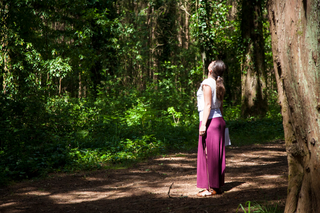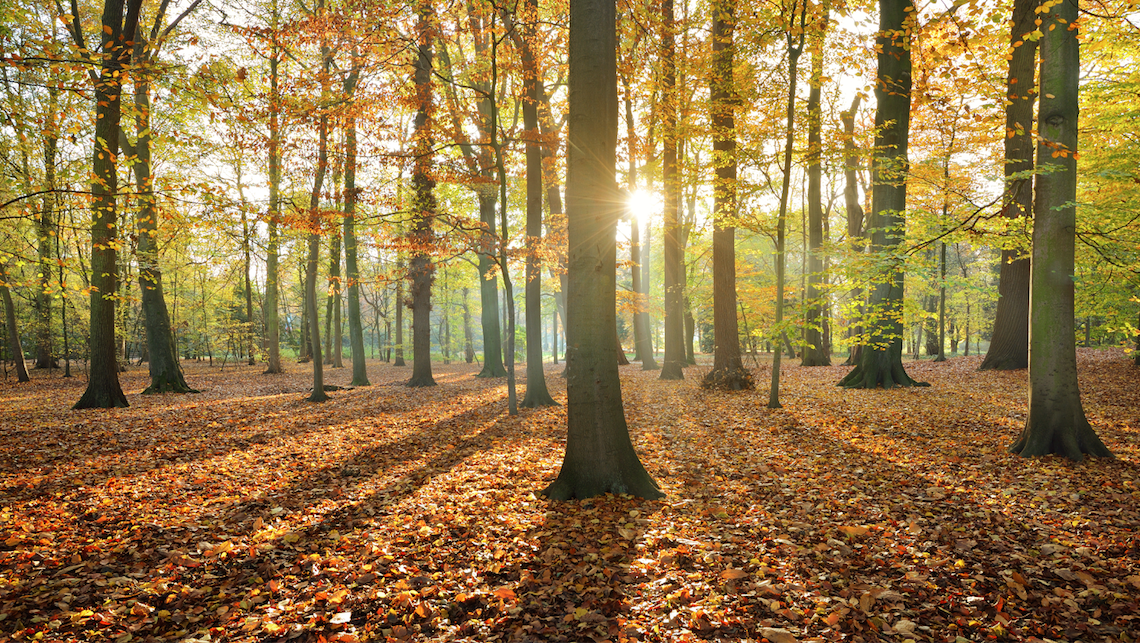 “Between a human and a tree is the breath. We are each other’s air.” —Margaret Bates Did you know that trees are among the world’s greatest healers? Forest Bathing, or Shinrin-yoku, is the Japanese practice of going to the forest to receive mental and physical healing. Forest plants emit essential wood oils and airborne chemicals to protect themselves from insects and decay. Research has shown that forest aromas benefit humans as well. Studies from Japan, Finland, the United States and other countries have shown that forest bathing can greatly reduce stress, increase joy level, lower blood pressure, improve concentration, strengthen the immune system, builds up vitality, and has powerful anti-cancer benefits. All cultures recognize that trees uplift the human spirit. To ancient people, trees were channels for the gods, and forests were humankind’s first temples and sanctuaries. Trees, living high in the sky, receive 95 percent of their sustenance from the atmosphere. Drawing nourishment from the sun and sky, trees express a divine benevolence. Buddhist scriptures speak of the unlimited kindness of trees—how they give generously, and offer protection and shelter to all beings. Forest bathing allows us to immerse ourselves in the benevolent and healing power of trees. All plants have phytoncides—active substances with antimicrobial properties that kill or inhibit the growth of bacteria, microscopic fungi and protozoa. Some trees release into the atmosphere volatile phytoncides that are capable of producing an effect at a distance. Studies have shown that the air in coniferous forests, and particularly in young pine forests, is particularly sterile and free of harmful microflora. In 1982, the director of the Japanese Forest Agency hypothesized that “bathing” in a phytoncide-rich environment would promote better health. He proposed the idea of forest bathing for relaxing the mind and for stress management. In 2004, the Japanese Ministry of Agriculture, Forestry and Fisheries initiated scientific studies to prove the therapeutic effects forests have on human health. These studies showed positive results for numerous areas of physical health. Since then, other studies conducted in the U.S. and Europe have found the same results. In Japan today there are 42 approved Forest Therapy Bases offering mental and physical healing. At some sites, forest therapy patients stay for two nights, during which they receive a medical checkup upon arrival, spend their free time walking in the woods and have a final checkup before leaving. Patients typically see significant improvement on their final exam. Many Japanese companies include forest therapy in their employee health-care benefits and wellness programs. —Joseph Cornell from "The Sky and Earth Touched Me" In my book, "The Sky and Earth Touched Me", I created a Forest Bathing activity to help people consciously draw more inspiration and deepen their rapport with trees. Download my Forest Bathing activity For more information about forest bathing research, please check out these articles. https://effortlessoutdoors.com/how-to-go-forest-bathing/ https://www.washingtonpost.com/news/to-your-health/wp/2016/05/17/forest-bathing-is-latest-fitness-trend-to-hit-u-s-where-yoga-was-30-years-ago/ http://www.shinrin-yoku.org/shinrin-yoku.html https://www.spafinder.com/blog/trends/2015-report/forest-bathing/
21 Comments
|
Joseph CornellPresident & Founder of Sharing Nature Worldwide Archives
June 2017
Categories |

 RSS Feed
RSS Feed